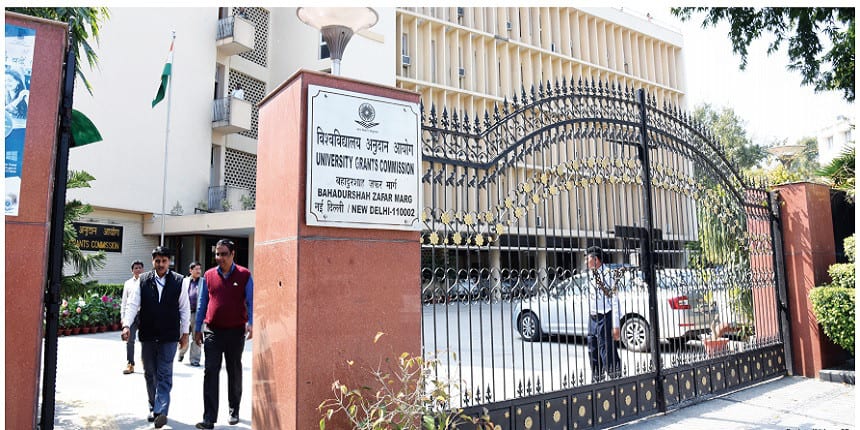UGC releases draft regulations on academic credit bank
Abhay Anand | January 22, 2021 | 05:38 PM IST | 2 mins read
The “credit bank” was a key proposal in the NEP 2020 cleared by the Union Cabinet last July. The UGC is seeking responses till February 5.

NEW DELHI: The University Grants Commission (UGC) has released draft regulations for the 'Academic Bank of Credits' (ABC), an initiative meant to facilitate credit transfer of students, allowing them to move across streams and higher education institutions. The academic bank of credits was a key proposal in the National Educational Policy (NEP) 2020. The UGC has given till February 5 to send in comments.
The draft regulation states that it is aimed at promoting flexibility of the curriculum framework and interdisciplinary and multidisciplinary academic mobility of students across institutions in the country with an appropriate “credit transfer” mechanism.
As per the draft regulation titled “UGC (Establishment and Operationalization of Academic Bank of Credits (ABC) Scheme In Higher Education) Regulation, 2021”, students will be able to choose their own learning path to attain a degree or diploma and choose the multiple entry-multiple exit option.
UGC regulation
As per the draft regulations, the ABC will be an “online store-house of the credit database” of higher education institutions which will be established on the lines of National Academic Depository. The UGC regulation states: “ABC shall be a bank for academic purposes on the pattern of a commercial bank for financial purposes with students as account holders to whom, the ABC shall provide a variety of services including credit verification, credit accumulation, credit transfer or redemption and degree authentication.”
The credit bank is meant to provide autonomy to students by “providing an extensive choice of courses for a programme of study, flexibility in curriculum, course options across disciplines.
The objective of the ABC will be to permit students to choose a pace for their studies along with the associated logistics and cost”. It will “allow students to tailor their degrees or make specific modifications/specialisations rather than undergoing the rigid, regularly prescribed degree/courses of a single university/autonomous college”, says the UGC draft.
ABC: High-ranking institutions
The credits earned and ‘stored’ under the ABC scheme will be valid for a maximum period of seven years or as specified separately by ABC for different subjects or disciplines. The credits can be “redeemed” if a student wants to rejoin a programme after a gap.
The credit bank will be tied to all higher education programmes and under all regulatory bodies.
Institutions that receive a minimum ‘A’ grade by the National Assessment and Accreditation Council (NAAC) or any such body are eligible to register under the ABC Scheme. However, in case the accreditation status of an HEI falls below ‘A’ grade, the ABC membership will be nullified. However, students who earned their credits at the institution before it lost its membership, will continue to benefit from the facility.
To avoid overcrowding in a particular course of a particular institution, each higher educational institution will be permitted to have the provision of a maximum of 20% supernumerary seats for each course over the sanctioned seats of a course.
A higher educational institution will be allowed to charge a fee based on the number of credits a student is collecting at it.
Write to us at news@careers360.com
Follow us for the latest education news on colleges and universities, admission, courses, exams, research, education policies, study abroad and more..
To get in touch, write to us at news@careers360.com.